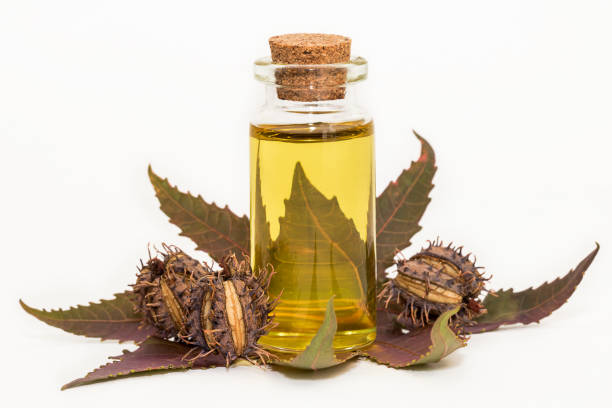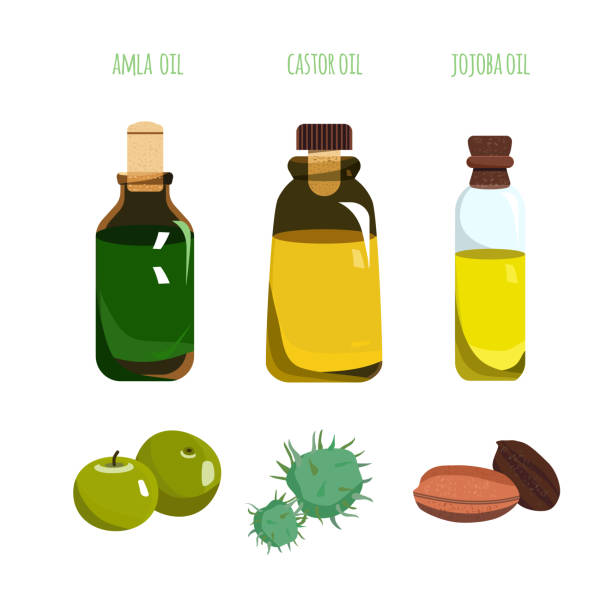Health
Is Castor Oil the Miracle Cure for Stronger Bones?
Are you seeking for a natural way to promote bone health? Look no further than castor oil. Castor oil, well-known for its numerous advantages, may also play an important part in maintaining bone strength and health. In this article, we’ll look at whether castor oil is helpful for bones and how it can potentially increase bone density.
Castor oil and its potential benefits for bones
Castor oil, obtained from the seeds of the Ricinus communis plant, has been used for millennia in traditional medicine. It contains critical nutrients like vitamin E, minerals, and omega-6 fatty acids, as well as anti-inflammatory and antioxidant characteristics that promote general health.
Castor oil has gained popularity as a bone health supplement due to its possible benefits. While there is limited scientific information about the effects of castor oil on bones, many people have experienced beneficial results. Castor oil’s anti-inflammatory qualities may help reduce inflammation and joint pain, hence indirectly benefiting bone health. Furthermore, continuous application of castor oil to the affected areas may enhance blood circulation and encourage the creation of collagen, a vital protein for bone strength.
However, further research is required to properly understand the effects of castor oil on bone health. It is always recommended that you consult with a healthcare practitioner before introducing any new remedies or supplements into your routine.

The role of castor oil in promoting bone health
Castor oil includes various critical elements for keeping strong and healthy bones. Vitamin E, for example, is a potent antioxidant that protects bone cells from free radical damage. Free radicals are unstable chemicals that can cause oxidative stress, weakening bones over time. Vitamin E helps to maintain bone density and strength by neutralizing free radicals.
In addition to vitamin E, castor oil provides minerals including magnesium, calcium, and zinc, all of which are essential for bone health. Magnesium aids in the absorption and utilization of calcium, the primary mineral responsible for bone strength. Calcium insufficiency can weaken bones and raise the risk of fractures. By getting enough magnesium from castor oil, you can help your bones use calcium more effectively.
Furthermore, castor oil contains omega-6 fatty acids, which have been associated to increased bone density and lower risk of osteoporosis. These fatty acids assist regulate the production of hormones involved in bone growth and resorption, resulting in improved bone health.
Research studies on castor oil and bone health
While there is little scientific study focusing on the effects of castor oil on bones, some studies have looked into its potential advantages for overall bone health. A study published in the Journal of Osteoporosis and Physical Activity looked at the impact of castor oil on bone strength in rats. The data suggested that castor oil supplementation could increase bone density and lower the incidence of osteoporosis. However, more research is needed to confirm these findings and better understand the mechanisms underlying castor oil’s possible influence on bones.
Another study published in the Journal of Ayurveda and Integrative Medicine looked into the impact of castor oil massage on bone health in postmenopausal women. The researchers discovered that regular castor oil massage increased bone mineral density and decreased the incidence of fracture in this cohort. Although these findings are intriguing, larger-scale research is needed to validate them and discover the best dosage and duration of castor oil consumption for bone health.
Overall, while research on castor oil and bone health is sparse, it suggests potential benefits that should be investigated further. As with any natural therapy, castor oil should be used as a supplement to bone health and discussed with a healthcare practitioner before adopting it into your daily regimen.

How to use castor oil for bone health
If you want to add castor oil into your daily routine to help with bone health, there are various options. Here are a few methods:
- Topical application: One of the most typical ways to use castor oil is to apply it directly to the affected regions. Simply apply a small amount of castor oil to your joints or areas of soreness and keep it on overnight. To prevent discoloration, cover the area with a towel or bandage. Repeat this technique on a daily basis, or as needed.
- Castor oil pack: A castor oil pack consists of wetting a cloth with castor oil and applying it on the afflicted area. To make a castor oil pack, soak a cloth in castor oil, drain out any excess, and apply to the appropriate region. Cover the pack with plastic wrap and add a heating pad or hot water bottle on top. Leave it on for 30-60 minutes. This approach is extremely effective for joint discomfort and inflammation.
- Oral consumption: While topical application is the most frequent way to use castor oil for bone health, some people prefer to take small amounts orally. However, it is important to note that castor oil should only be used in moderate doses and under the supervision of a healthcare practitioner. Excessive use of castor oil might cause intestinal discomfort and other side effects.
Remember, always contact with a healthcare expert before using castor oil or any other natural medicine to confirm that it is safe and appropriate for your specific requirements.
Other natural remedies for bone health
While castor oil has shown potential in promoting bone health, it is not the only natural therapy accessible. Here are a few other natural options to consider:
- Calcium-rich foods: Consuming a diet rich in calcium is essential for maintaining strong and healthy bones. Include foods such as dairy products, leafy green vegetables, nuts, and seeds in your daily meals to ensure an adequate intake of calcium.
- Vitamin D: Vitamin D plays a crucial role in calcium absorption and bone health. Spend time outdoors to get natural sunlight, which is a natural source of vitamin D. Additionally, include foods such as fatty fish, fortified dairy products, and egg yolks in your diet to increase your vitamin D intake.
- Regular exercise: Engaging in weight-bearing exercises, such as walking, jogging, or weightlifting, can help strengthen your bones. Exercise stimulates the production of new bone tissue and helps maintain bone density.
- Balanced diet: A well-balanced diet that includes a variety of fruits, vegetables, lean proteins, and whole grains provides essential nutrients for overall health, including bone health.
Incorporating these natural remedies into your lifestyle, alongside castor oil, can help support your bone health and overall well-being.

Precautions and potential side effects of using castor oil
While castor oil is generally considered safe for topical use, it is essential to take certain precautions and be aware of potential side effects. Here are some considerations:
- Allergic reactions: Some individuals may be allergic to castor oil. Before using it topically, perform a patch test on a small area of your skin to check for any adverse reactions. If you experience redness, itching, or swelling, discontinue use and consult a healthcare professional.
- Digestive discomfort: Consuming castor oil orally can lead to digestive discomfort, including stomach cramps, diarrhea, and nausea. It is crucial to follow the recommended dosage and consult with a healthcare professional before using castor oil orally.
- Pregnancy and breastfeeding: Pregnant and breastfeeding women should exercise caution when using castor oil. While limited research suggests it may be safe for topical use during pregnancy, oral consumption is not recommended without medical supervision.
- Medical conditions and medications: If you have any underlying medical conditions or are taking medications, it is important to consult with a healthcare professional before using castor oil. Some medications may interact with castor oil, and certain medical conditions may require specific precautions.
Always prioritize your safety and consult with a healthcare professional before incorporating castor oil or any other natural remedy into your routine.
Consultation with a healthcare professional before using castor oil
Before using castor oil for bone health, speak with a healthcare practitioner. They may provide you specialized advise based on your specific health needs and help you decide which method is best for you. They can also look into any possible interactions with medications or medical issues you may have.
Remember that, while castor oil has shown promise in terms of bone health, it should be used in conjunction with other lifestyle factors such as a balanced diet, regular exercise, and proper calcium and vitamin D levels.
Conclusion
In conclusion, I believe castor oil holds potential benefits for bone health due to its anti-inflammatory and antioxidant properties. While more research is needed to establish its efficacy and mechanisms of action, many individuals have reported positive results when using castor oil to support bone health.
By reducing inflammation, improving blood circulation, and stimulating collagen production, castor oil may indirectly contribute to stronger and healthier bones. However, I understand the importance of approaching castor oil as a complementary approach alongside other lifestyle factors and consulting with a healthcare professional before using it.
If I am considering using castor oil for bone health, I would remember to follow the recommended application methods, perform a patch test, and be aware of any potential side effects. I prioritize my safety and would consult with a healthcare professional to ensure it is suitable for my individual needs and circumstances.
While castor oil is a natural remedy with potential benefits, I acknowledge the importance of maintaining a comprehensive approach to bone health by incorporating other natural remedies, such as a balanced diet, regular exercise, and adequate calcium and vitamin D intake.
Trusted Health, Wellness, and Medical advice for your well-being


